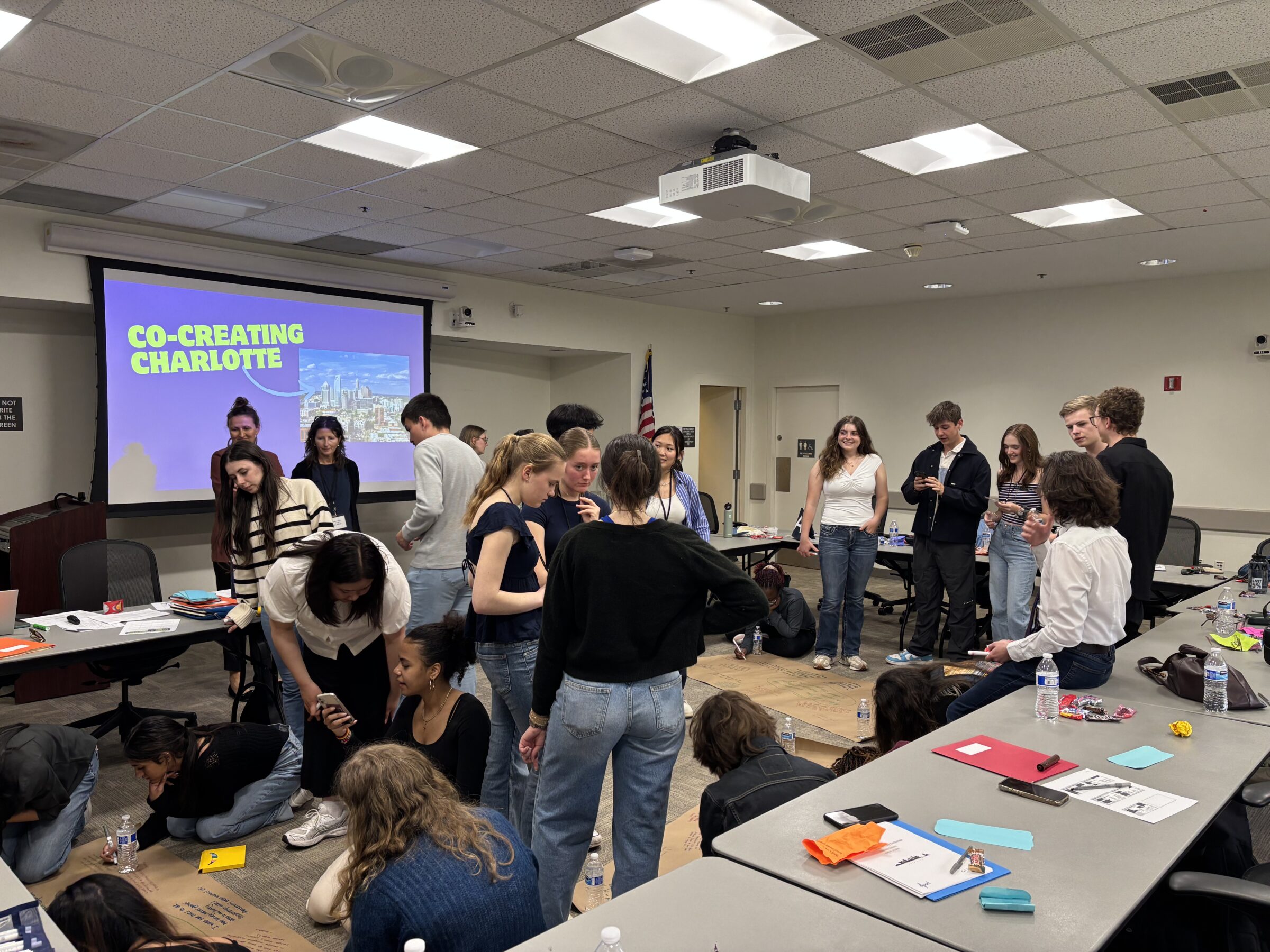Young people in Charlotte and around the world have shown time and again that they have the best ideas about what they want and need to live in a city that supports their ability to learn, explore and experience awe, and flourish and feel belonging with their peers and community.
The Gambrell Foundation’s partnership with the German Marshall Fund (GMF) brings many of the lessons about young people’s brilliance from our Expeditions abroad right into our Charlotte backyard. The latest project, Co-Creating Our City, helps young people lead the way by actively participating in local city governance to shape Charlotte’s future.
I sat down with Tarsi Dunlop, a senior program officer with GMF to discuss how the Co-Creating Our City project will help Charlotte communities Live Greatly.
GMF champions democracy, prosperity, and security as the cornerstones of the transatlantic relationships and forges a transatlantic alliance capable of addressing current and future challenges, both domestic and global. The Cities program works towards inclusive, sustainable and globally engaged cities through transatlantic exchange and learning. Collectively, the work at GMF has both a local and global approach to the values and traditions we have upheld in the 50 plus years since our founding.
Co-Creating Our City, which is happening in both Düsseldorf, Germany and Charlotte, takes a targeted, “citizen scientist” living lab approach to the question of youth engagement and visioning for their city. Youth and city employees participate as equals to implement research methods exploring how young people would like to engage with their city government. Youth steer the content of the research, as well as research implementation, while city staff provide the needed support and additional input. It also provides a unique opportunity for city officials and youth to exchange ideas in an open monthly forum while working together toward a common goal. Citizen scientists, who in this case are city youth, direct the scientific process in this project, so they have been able to make discoveries on any number of issues that are important to the community, such as effective forms of communication with young people, or interest in engagement with specific events or departments. Finally, the project is inclusive of non-voters, those under 18, and non-citizens.
In Charlotte, for example, the discussions highlighted a desire young people had to learn more about the functions of their local government across a range of departments, a desire to learn about potential career opportunities, and the need for more frequent and strategic engagement strategies directed at young people.

The premise for the Co-Creating Our City project is that there was a mismatch between how policymakers ask young people to participate in their communities and how young people want to engage locally. The discussion on our preliminary findings raised some challenges with the quality of engagement opportunities that exist, particularly in terms of efficacy. Although young people acknowledge that some opportunities do exist, they are not sure how much impact their (often lone) representative youth voice has on the outcome due to a lack of voting status. Oftentimes, engagement may be a one-off event without follow-through or specific activities focused on initiating youth-focused programs separate from incorporating their views into wider city issues.
As citizen scientists, youth and city leaders are engaging in an intergenerational participatory research process to identify new pathways for young peoples’ voices and ideas to influence city decision-making in an ongoing, sustainable manner. This participatory research explores how young people and city leaders imagine their relationship in new and more connected pathways that ultimately should enhance the youths’ agency, life satisfaction, and well-being. Youth also expressed an interest in staying in Charlotte in the long run, especially if it reflects their vision for a dynamic city of the future.
In the most basic sense, local civic engagement produces more informed participants whose participation is critical for a democratic society, including a greater likelihood of being a lifelong voter. But, practicing democracy goes well beyond what happens at the ballot box and, in many cases,is far more powerful. Residents who exercise their rights to influence what their community looks like through town halls and planning meetings or citizen assemblies, demanding accountability from local officials, or practicing community-building by volunteering are all a critical part of what it takes for democracies to thrive.
Engagement at the local level provides youth with a living laboratory to learn to be engaged members of their community at both the local and national level. Young people increase their understanding of the complexities of their communities, as well as of local governance, while grappling with what will increase sustained engagement and produce positive changes for them and their peers. This deep co-creation process can contribute to increased feelings of empowerment and belonging with the local community.
This pilot effort is an exercise in creating more inclusive communities that bring more young voices — including those from marginalized groups — into the thinking and planning of cities with an eye towards building thriving places for future generations.
On a fundamental level, and possibly from a somewhat personally selfish perspective, to Live Greatly for me means the ability and freedom to dream, access information, identify what you love to do and do it to the greatest extent possible. This is without fearing for your safety, operating within financial constraints or worrying about your own abilities. Not everyone will choose to do something that gives back or benefits a broader community, but the ability to make decisions based on what gives you joy and satisfaction opens up the possibility to connect with deeper motivations and realize a way of life that you may not even realize you want to manifest in the world.